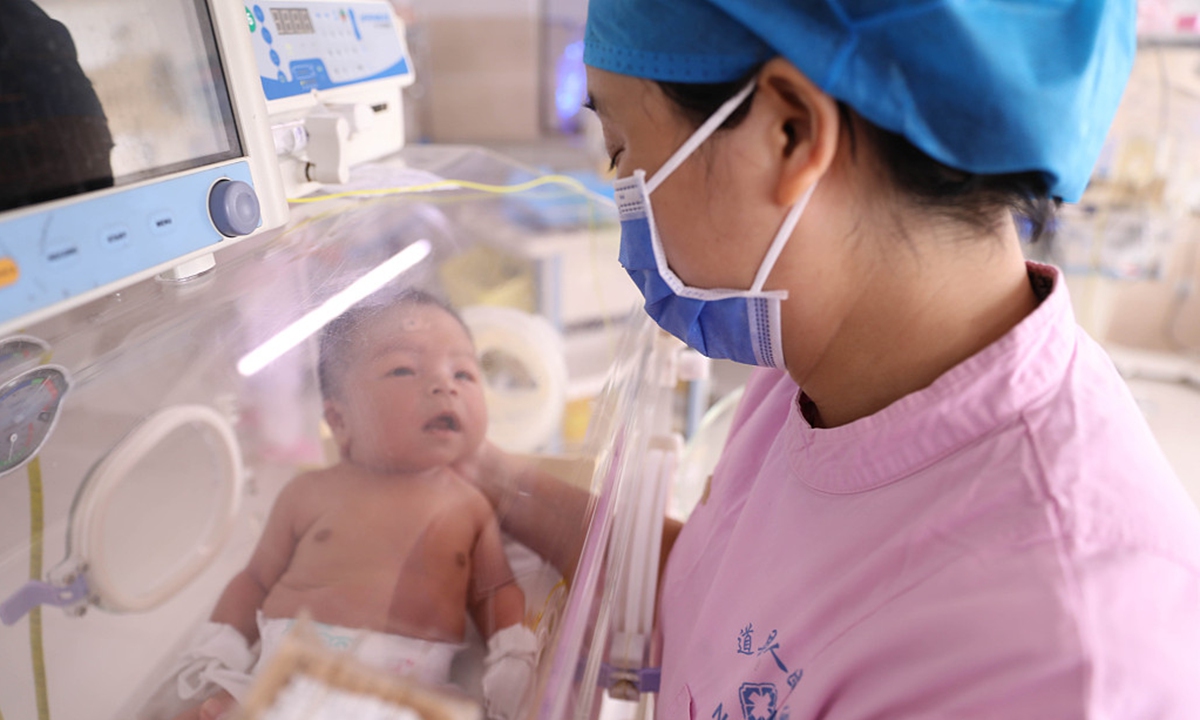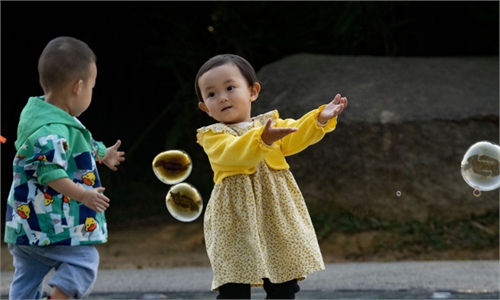
File Photo: VCG
The proportion of the population who have one child reached more than 73 percent among the household registered residents in Shanghai, while the rate of those who have two children stood at 24.34 percent in 2022, according to the latest data released by the Shanghai municipal health commission.
According to official data released on Monday, in 2022, 1.86 percent of the population with household registration in Shanghai had multiple children. Among the population with household registration, the number of women of childbearing age exceeded 2.93 million and the number of married women of childbearing age exceeded 1.85 million.
The number of births is affected by the number of women and the order-specific fertility rates, Song Jian, a demographer from the Center for Population and Development Studies of the Renmin University of China, told the Global Times on Tuesday.
Shanghai's total fertility rate for the population with household registration is 0.7, with the mean age at first birth being 30.36 and the average childbearing age being 31.18, according to official data.
The total fertility rate is at a low level in the city, which is not surprising as Shanghai is facing a serious challenge of population aging, Song said.
Official data shows that in 2020, the rate of one-child households among registered residents was over 71 percent, up 1.14 percentage points from 2019, while the rate of two-child households reached more than 27 percent, down 1.31 percentage points from 2019, and the rate of households with three or more children was 1.30 percent, up 0.16 percentage points from 2019.
Several other regions, including Central China's Henan Province, have recently released relevant population data. According to the provincial Bureau of Statistics, the total number of permanent residents in Henan Province decreased in 2022, with the natural growth rate of the population dropping for the first time in 62 years.
Chinese mainland saw the population with negative growth for the first time in 61 years, decreasing by 850,000 in 2022, data released by the National Bureau of Statistics of China showed. Song noted that the negative population growth is the inevitable result of the country's long-term low fertility rate.
To encourage birth rates, the country has implemented various policies covering sectors such as insurance, housing, education, employment, and tax deductions.
Global Times


